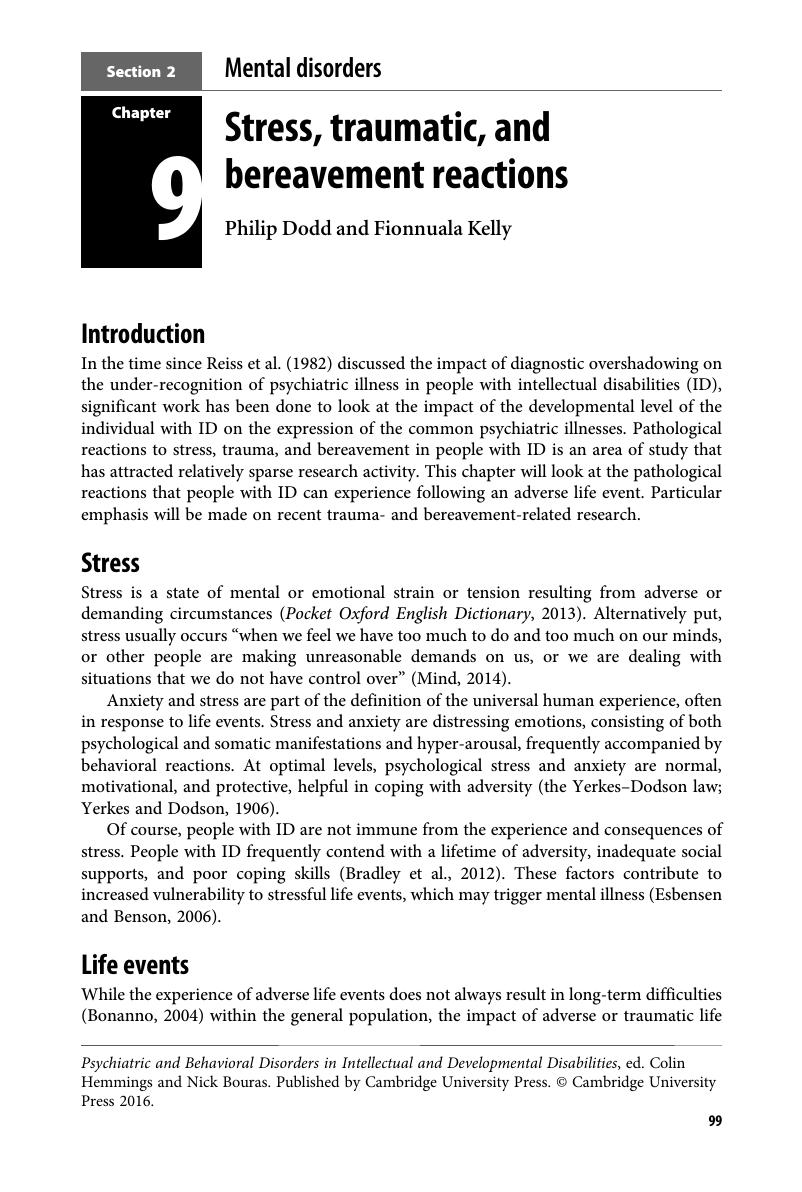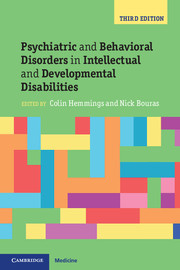Book contents
- Psychiatric and Behavioral Disorders in Intellectual and Developmental DisabilitiesThird Edition
- Psychiatric and Behavioral Disorders in Intellectual and Developmental Disabilities
- Copyright page
- Contents
- Contributors
- Preface
- Section 1 Foundations
- Section 2 Mental disorders
- Chapter 5 Dementias
- Chapter 6 Schizophrenia spectrum disorders
- Chapter 7 Mood disorders
- Chapter 8 Anxiety disorders
- Chapter 9 Stress, traumatic, and bereavement reactions
- Chapter 10 Personality disorders
- Chapter 11 Mental illness with intellectual disabilities and autism spectrum disorders
- Chapter 12 Attention-deficit/hyperactivity disorder (ADHD)
- Section 3 Interventions
- Section 4 Special topics
- Section 5 Services
- Section 6 Reflections
- Index
- References
Chapter 9 - Stress, traumatic, and bereavement reactions
from Section 2 - Mental disorders
Published online by Cambridge University Press: 05 March 2016
- Psychiatric and Behavioral Disorders in Intellectual and Developmental DisabilitiesThird Edition
- Psychiatric and Behavioral Disorders in Intellectual and Developmental Disabilities
- Copyright page
- Contents
- Contributors
- Preface
- Section 1 Foundations
- Section 2 Mental disorders
- Chapter 5 Dementias
- Chapter 6 Schizophrenia spectrum disorders
- Chapter 7 Mood disorders
- Chapter 8 Anxiety disorders
- Chapter 9 Stress, traumatic, and bereavement reactions
- Chapter 10 Personality disorders
- Chapter 11 Mental illness with intellectual disabilities and autism spectrum disorders
- Chapter 12 Attention-deficit/hyperactivity disorder (ADHD)
- Section 3 Interventions
- Section 4 Special topics
- Section 5 Services
- Section 6 Reflections
- Index
- References
Summary

- Type
- Chapter
- Information
- Publisher: Cambridge University PressPrint publication year: 2016
References
- 2
- Cited by



